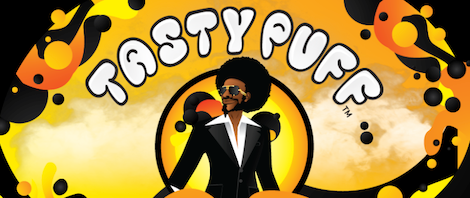CBD vs Bipolar Disorder Symptoms
As medical marijuana becomes legal in more states across the country, there’s been a spike in public interest to see whether cannabis can effectively treat mood disorders such as anxiety, depression, and psychosis that are commonly associated with bipolar disorder. Unfortunately, there are conflicts in scientific consensus for both supporting and opposing views of cannabis use for the treatment of mood disorders. Some studies have linked marijuana use with early-onset psychosis, while others suggest there are anti-psychotic benefits of cannabis in bipolar disorder patients.
It has been shown that cannabidiol has anti-psychotic properties, particularly anxiolytic benefits in humans. CBD possesses hypnotic, anti-convulsive, neuroprotective, and anti-stress benefits. Based on this evidence, research studies have begun to investigate the anxiolytic and antipsychotic benefits of CBD, which may be useful in effectively treating bipolar disorder.
The Neurochemistry of Bipolar Disorder and Cannabinoids
A dysfunctional endocannabinoid system (EC) has been implicated in mood disorders such as bipolar disorder, and modulation of the EC system by exogenous cannabinoids such as cannabidiol, tetrahydrocannabinol and anandamide can potentially treat bipolar disorder symptoms by exerting antipsychotic, anticonvulsant, and anxiolytic effects. Research studies have demonstrated the antipsychotic mechanism action of cannabidiol. Administration of cannabidiol may indirectly influence endogenous anandamide signaling by inhibiting intracellular metabolism by fatty acid amide hydrolase (FAAH). Elevated levels of anandamide can attenuate mood disturbances and treat bipolar disorder symptoms.
Research studies have pointed out the role of the dopamine (DA) system in mood disorders, including bipolar disorder. The key role of the mesoaccumbens DA system has been proven in the reward pathway (neural circuitry) and motivational behaviors. Experimental studies being conducted to investigate the efficacy of anti-psychotic drugs are based on the hypothesis of dopamine, glutamate, and other neurotransmitters. These drugs exhibit antagonism to dopamine D2 receptors which is commonly linked with hyperprolactinemia due to action of anterior-pituitary mammotrophic cells. These drugs are called typical anti-psychotics (Clozapine) which cause Parkinson-like symptoms, while atypical anti-psychotics are also effective without causing serious adverse events, which can be confirmed by a catalepsy test.
Atypical anti-psychotic drugs inhibit hyperlocomotion and the stereotype that results due to dopamine antagonists at lower doses. Effective anti-psychotic action requires the blocking of D2 receptors as well as glutamatergic N-methyl-D-aspartate (NMDA) receptors.
A comparative study assessed the anti-psychotic efficacy of haloperidol (an anti-psychotic drug) and cannabidiol (CBD) found that CBD inhibited hyperlocomotion without causing catalepsy, even at higher doses; while haloperidol caused prolactin disturbances. The pharmacological action of CBD mimics clozapine. Another neurochemical experimental study reported similar results. These results prove that CBD acts like an atypical anti-psychotic drug without causing serious and long-term side effects.
One study investigated the anti-depressive action of CBD in an experimental animal model (AKA olfactory bulbectomy mouse model) of depression (OBX). The results suggest that cannabidiol exerted rapid and sustained antidepressant action in the depressed animals by significantly augmenting cortical serotonin and glutamate levels in a dose-dependent manner. Receptor studies have shown that the action was exerted via a 5-HT1A receptor-dependent mechanism, which represents novel drug functionality. After prolonged CBD administration notable adaptive changes were documented in pre and post-synaptic 5-HT1A receptor action.
CBD can inhibit glutamate toxicity and offers anti-convulsant and mood-stabilizing benefits, which are similar to the benefits of conventional therapeutic drugs such as valproate and lithium that are indicated for bipolar disorder. In open-label human clinical trials, CBD has significantly reduced psychotic symptoms and normalized motor functions in psychiatric patients. These benefits can be useful to treat manic episodes in bipolar disorder patients.
Cannabinoids influence mood perceptions and exert anti-depressant action by acting as an agonist in central CB1 receptors. 5-HT is believed to be responsible for mood control and implicated in antidepressant-like actions. Research evidences have pointed out the action of CBD in the serotonin (5-HT) system and related neurons. Administration of CB1R agonists such as phytocannabinoids into the ventromedial prefrontal cortex of the brain has resulted in enhanced 5-HT neuronal activity and CB1R-dependent antidepressant-like effects in the experimental animals. This study clearly shows the dose-dependent antidepressant benefit of CBD, which can be particularly useful for the treatment of mood disorders, including bipolar disorder.
More Including: The Neuroprotective, Anti-psychotic, and Anxiolytic Benefits of CBD at Marijuana Times.




















